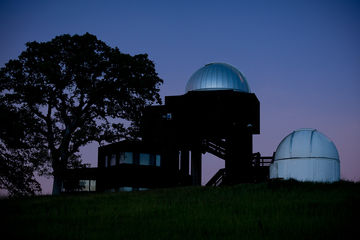PHYSICS DISSERTATION DEFENSE: Caleb Cook

Linda Cicero
Ph.D. Candidate: Caleb Cook
Research Advisor: Steven Kivelson
Date: June 3rd, 2022
Time: 9:00 AM
Location: Varian 355
Zoom Link: https://stanford.zoom.us/j/94771585874
Zoom Password: email nickswan [at] stanford.edu (nickswan[at]stanford[dot]edu) for password.
Title: Anisotropic Electron Hydrodynamics
Abstract: Hydrodynamics is a general framework for modeling the transport of conserved quantities over long length- and timescales. In ultra-pure metals at low temperature, where momentum-conserving electron scattering can dominate momentum-relaxing scattering, the approximate conservation of electronic momentum allows for a hydrodynamic description. Textbook, Galilean-invariant hydrodynamics, however, is often inappropriate in these systems, as the presence of a crystalline lattice generically and explicitly breaks rotational symmetry.
In this talk, I will begin with a brief overview of electron hydrodynamics and the representation theory used to describe low-symmetry fluids. Next, motivated by recent experiments in PdCoO2, I will discuss a kinetic theory model of 2D Fermi liquids with a polygonal Fermi surface and explain how point anisotropy alters the model's hydrodynamic limit. I will then specialize to fluids with triangular point group and describe how inversion-symmetry breaking in this context gives rise to an experimentally-accessible hydrodynamic analogue of the piezoelectric effect in solids. Finally, I will give a systematic treatment of the viscosity tensor for 2D fluids of arbitrary point group and describe an experimental proposal for measuring the many, distinct viscosity components that generically appear in such fluids.
References:
[1] Electron hydrodynamics with a polygonal Fermi surface, CQC and Andrew Lucas, Physical Review B 99 23 (2019)
[2] Viscometry of electron fluids from symmetry, CQC and Andrew Lucas, Phys. Rev. Lett. 127, 176603 (2021)
[3] Hydrodynamics with triangular point group, CQC, Aaron J. Friedman, and Andrew Lucas, arXiv:2202.08269 (2022)